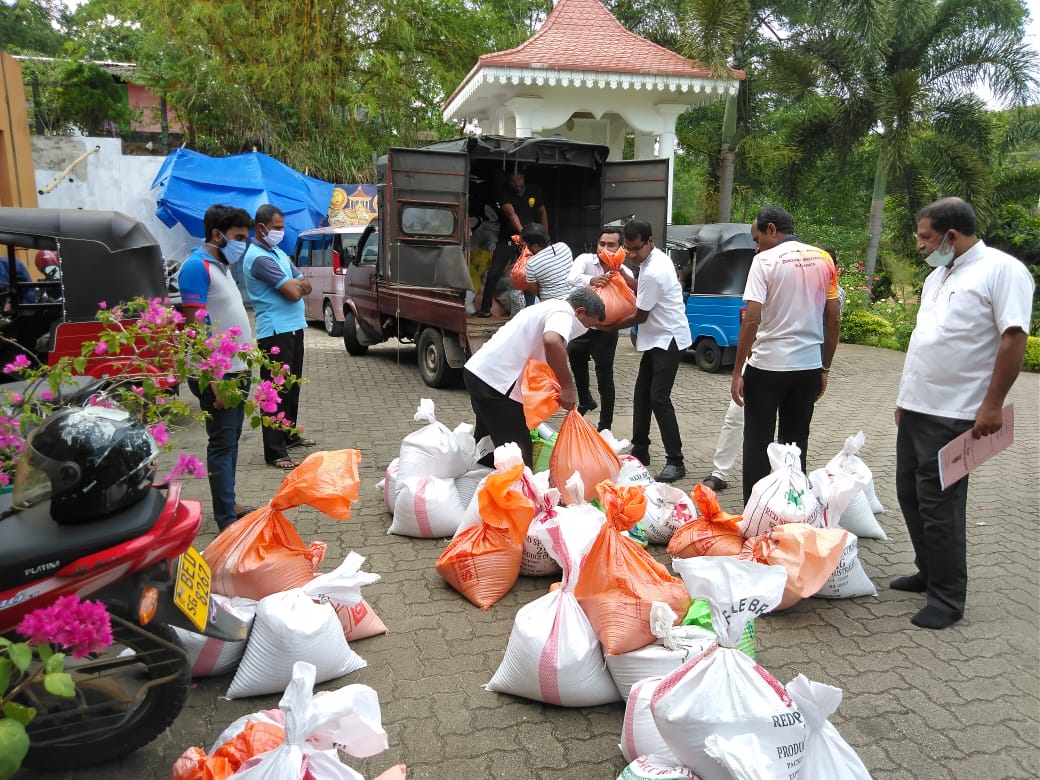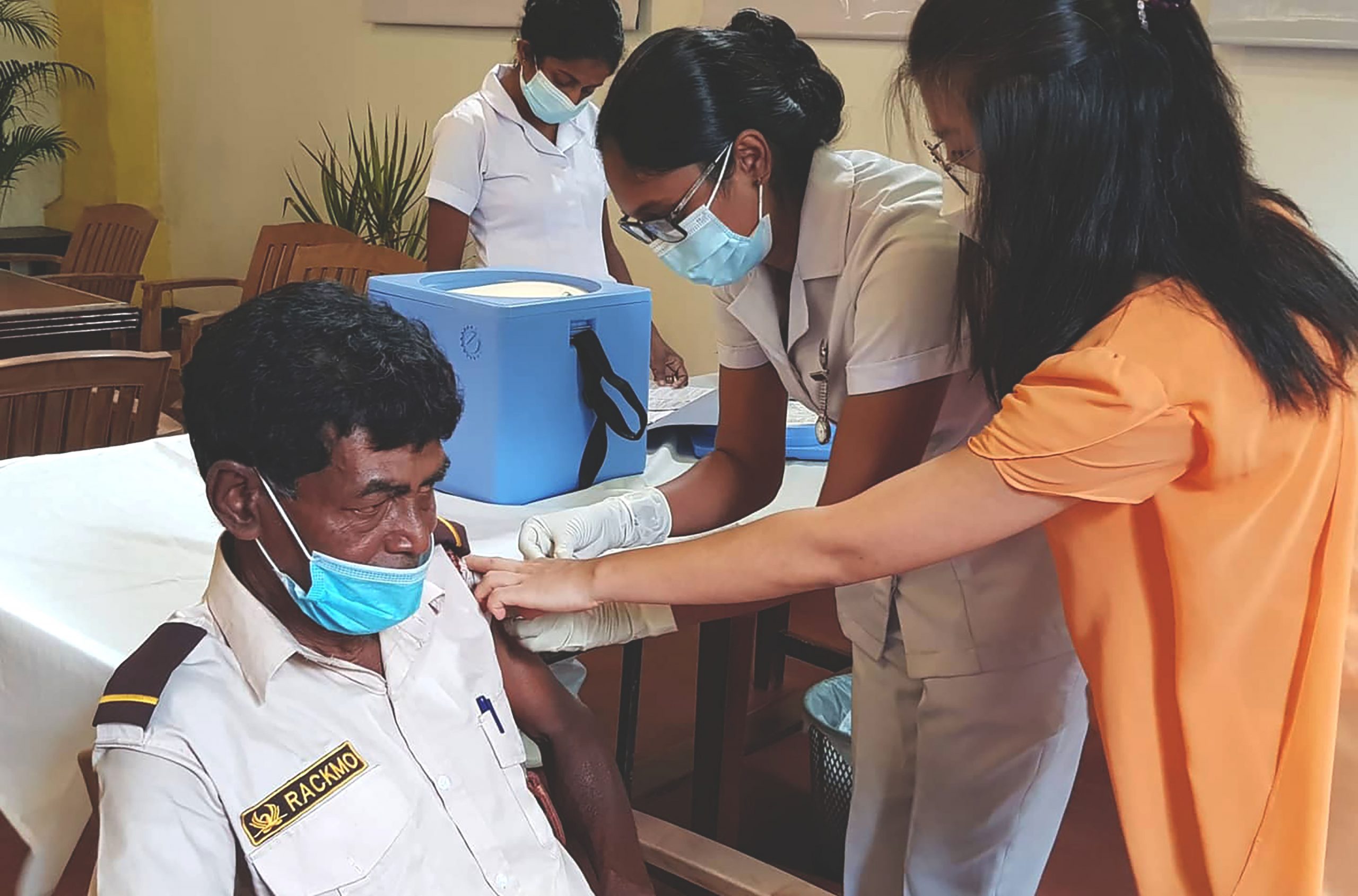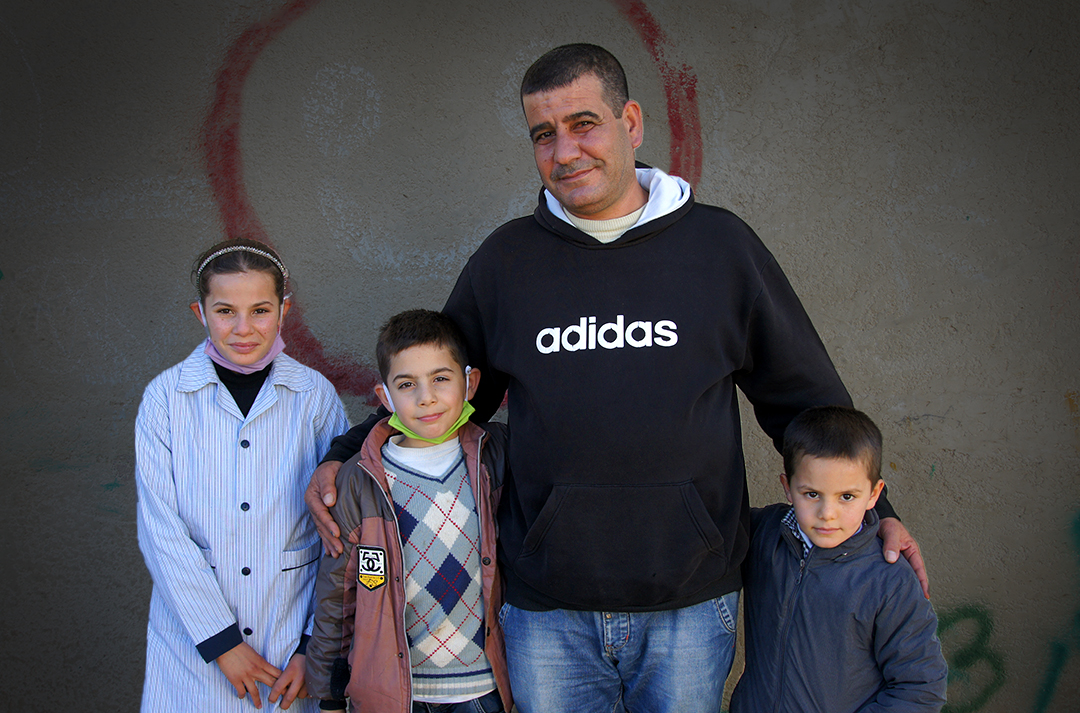In crisis:
‘God knows exactly how long our trials will endure and he will give us the strength we need to get through them’
A year ago, the Easter Sunday bombings devastated Sri Lanka’s Christians. Now the country is facing the threat of Coronavirus. Roshan Mendis, Head of Asia Pacific Baptist Aid, believes that the Sri Lankan Church has lots to teach UK Christians at this moment of global crisis.
Our brothers and sisters in Sri Lanka are no strangers to tragedy. After surviving 30 years of civil war, on Easter Sunday last year (21 April 2019) they were targeted by bombs that reduced churches and hotels to rubble and stole hundreds of lives.
Long-time BMS World Mission partner Roshan Mendis has lived through these national crises, as well as suffering heartbreaking personal loss. Now, he’s involved in co-ordinating the global Baptist response to Coronavirus, alongside BMS and Baptist agencies around the world. (Find out how you can make this possible through the BMS Coronavirus appeal!)
We asked Roshan about faith, fear, and living through crises. His answers moved and inspired us – we hope they do the same for you. This interview is the second in our series, ‘In crisis: lessons from the World Church’. Read wisdom from Nepal here.
We are providing vulnerable families in Sri Lanka with much-needed food parcels to help them get through this pandemic. Help these families and others in desperate need around the world by giving to the BMS Coronavirus appeal now.

Life is uncertain for everyone right now. Is there a Bible passage that you’ve turned to that has helped you through hard times?
I recall reading James 1 the morning after our daughter passed away and questioning God and also realising that God was bringing about something in my own life. Teaching and perfecting me as well through the grief and sorrow. Isaiah 43: 2 has also been a powerful verse to remind me that God is in the midst of the engulfing waters, the raging fire that he promises to bring us through – not out of. When we are in a trial, it seems like it will never end, but God is a God of all time; he knows exactly how long our trials will endure and he will give us the strength we need to get through them.
I have learnt that as we accept the trial and tough times, God is able to take that very pain and transform it into a passion in our lives – fulfilling his word in working out all things (both good and bad) for good as we stay faithful to him.

If we are feeling afraid, should we fight that? Can fear teach us anything?
In my experience, fear is a normal feeling that is part of the human make-up. The key is how we respond or react to that feeling of fear. Fear teaches us a valuable lesson about our own vulnerability and fragility in a situation and the fact that we don’t have the capacity to deal with the challenge before us. Covid-19 is one such example in which we realise our own limitations. This forces us to reach out to some other source for support or strength to meet that challenge and cope with that fear. Fear forces us into realising our interconnectedness and dependency beyond ourselves.
I wouldn’t call myself a brave man, by no means. I really don’t think I am. I am not the type of person who will jump in to someone else’s fight or readily volunteer for any public activity or rise up to speak on the spur of the moment, but somehow circumstances in life have brought me into situations which other people have looked on as bravery on my part. The saying attributed to Mark Twain says, “Courage is resistance to fear, mastery of fear, not absence of fear.” If someone has absolutely no capability to fear, then he really has no capacity to be a courageous leader. It is that ability to act ‘in spite of’. In my ministry, I found myself in situations in which I was forced to act in spite of fear.

Many people in the UK have not lived through a crisis of the proportions of Coronavirus before, but Sri Lanka has experienced a lot of unrest, from years of civil war to the devastating Easter bombings. Can you tell us about those struggles?
Uncertainty has been for a long time a part of the fabric of daily life in Sri Lanka due to the conflict that lasted for almost 30 years until 2009. For many of us who were in the midst of living and working in that context, the aversion to risk that began to be evident in the humanitarian sector as well as within global thinking was almost amusing. The absence of conflict since 2009 had to some degree caused many of us to slip into a state of assuming that era had passed, until the Easter bombings rocked our city last year. The effects of this, apart from the grief of the many lives that were lost, rebirthed in many minds the trauma of the war and made us realise that old wounds had still not been fully healed. We saw cases of individuals reliving those days and affected by past trauma. The Easter bombings made many of us feel a sense of vulnerability that we had not felt during the conflict years. It felt like anyone could be the target.
The resultant closure of churches left many feeling a vacuum in their faith with the absence of public worship. Even currently, one of the biggest challenges of many churches and congregations both big and small is the inability to gather together as a congregation. The deadly Easter bombings in Sri Lanka that caused churches island-wide to be shut down and congregations to be barred from meeting was in a sense a precursor for many of us in Sri Lanka for what has been the present reality. It was also a good opportunity to highlight and educate congregations of the error of the understanding they had grown up with, that the gathering at the building on a Sunday constituted church. One of the quotes that as a local church in Sri Lanka we used to refocus the mind of the congregation was to circulate an image on social media of our empty church with the words “THE CHURCH HAS LEFT THE BUILDING!” This was a good preparation for many, for what became the scenario as the nation went into lockdown for Covid-19.


Has going through extraordinarily tough times before prepared you for the arrival of the Coronavirus?
I believe the experiences of serving in difficult circumstances have developed my resilience. As I look at some of those growing up in leadership now and also encounter Christians in other nations that have grown in an environment of safety and relative comfort, I find that many of them, when they face a challenge, get quickly discouraged and come close to quitting. The tenacity to stay in a tough situation, the determination to see things through to the end, is often diluted by a mindset that anticipates a level of ease and comfort in leadership and discipleship.
Living out one’s faith in strong and highly resistant non-Christian communities makes the new believer realise early in their Christian walk the realities of taking up the cross and following Christ. I would not limit these experiences alone as a preparation for facing the Coronavirus, but these experiences of brushes with death, working in hostile environments, motives being suspected due to your faith, having to serve in the midst of conflict, and experiencing personal loss and grief have all contributed to being able to face difficult situations. Sadly, the ease of belief for most Christians in western nations makes their resilience in the face of personal or national trial falter and can result in them questioning even the goodness of God.

Are there any lessons the Sri Lankan Church can share with the UK Church?
For sure there is – I believe the nature of our faith and belief and understanding of discipleship is one that the UK Church can learn from. To realise that discipleship is costly, that it is not simply about God meeting our wants and needs but it is a journey that demands a price from us as well. In addition, the acceptance of the reality of spiritual warfare in our daily Christian walk in a context where evil spirits, charms and occult practises are a commonplace part of the religious psyche of people. This enables an understanding that looks beyond the physical/material realm to a spiritual realm that I have observed is often a missing element or understanding in the West.
The realisation of these makes one understand that dependence on our own strength and ability in such a context is futile and therefore the only recourse and strength is to draw on God.

How can Christians encourage and support people in their community at times like this?
In addition to prayer, I believe that like Nehemiah experienced, God calls us to be the answer to our own prayers. I think it is important that Christians are seen as people of hope and service. The Church must realise that its role is not in the building, in corporate worship, but our worship – our service – is in the public spaces and out in the community. The Church must be to their neighbours the hands and feet of God, by offering practical help and support. I heard of a church that stood outside a supermarket store and gave away toilet rolls! Another that made masks and distributed them to the community. Another that telephoned the elderly in lockdown. Others that distributed groceries to households that had lost jobs. We heard of believers in China who risked their lives, caring for the sick as volunteers, in the faith that were they to die they could claim Paul’s word’s – to be with the Lord is better than life.
Please pray for Sri Lanka in the face of the Coronavirus pandemic
We asked Roshan how we can pray for Sri Lanka right now. Here’s what he said.
Please pray:
- For pastors impacted by the alienation from their congregations
- For many households whose income has been impacted and businesses and industry that has been hampered in local production
- Against certain elements seeking to stigmatise and bring in racist elements into the conversation around people affected by the virus
- For the impact of the Coronavirus on our churches both economically and as a community
- For the economic impact on the nation with a significant loss of jobs
- For the many households that are rent payers at risk of being evicted
- For those driven to despair to receive the psychosocial support that they need
- For wisdom for the government leadership to work together. At this time due to an impending election, parliament was dissolved and so there is an absence of a voice for people
- For required equipment and testing kits
- For my role in helping to co-ordinate the global Baptist response to Coronavirus, and for wisdom for the whole response team
Pray for Sri Lanka in your online service!
One year on from the Easter bombings, we’d love the Church in the UK to lift up Sri Lanka. Use this copyright free PowerPoint presentation in your online service to pray with us for Sri Lanka. Click the button below to download it!








